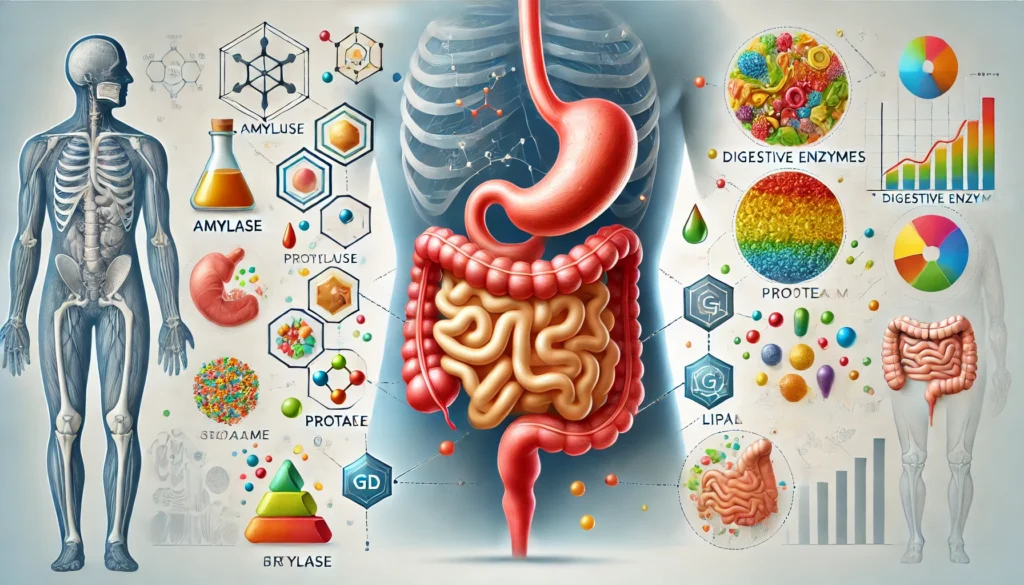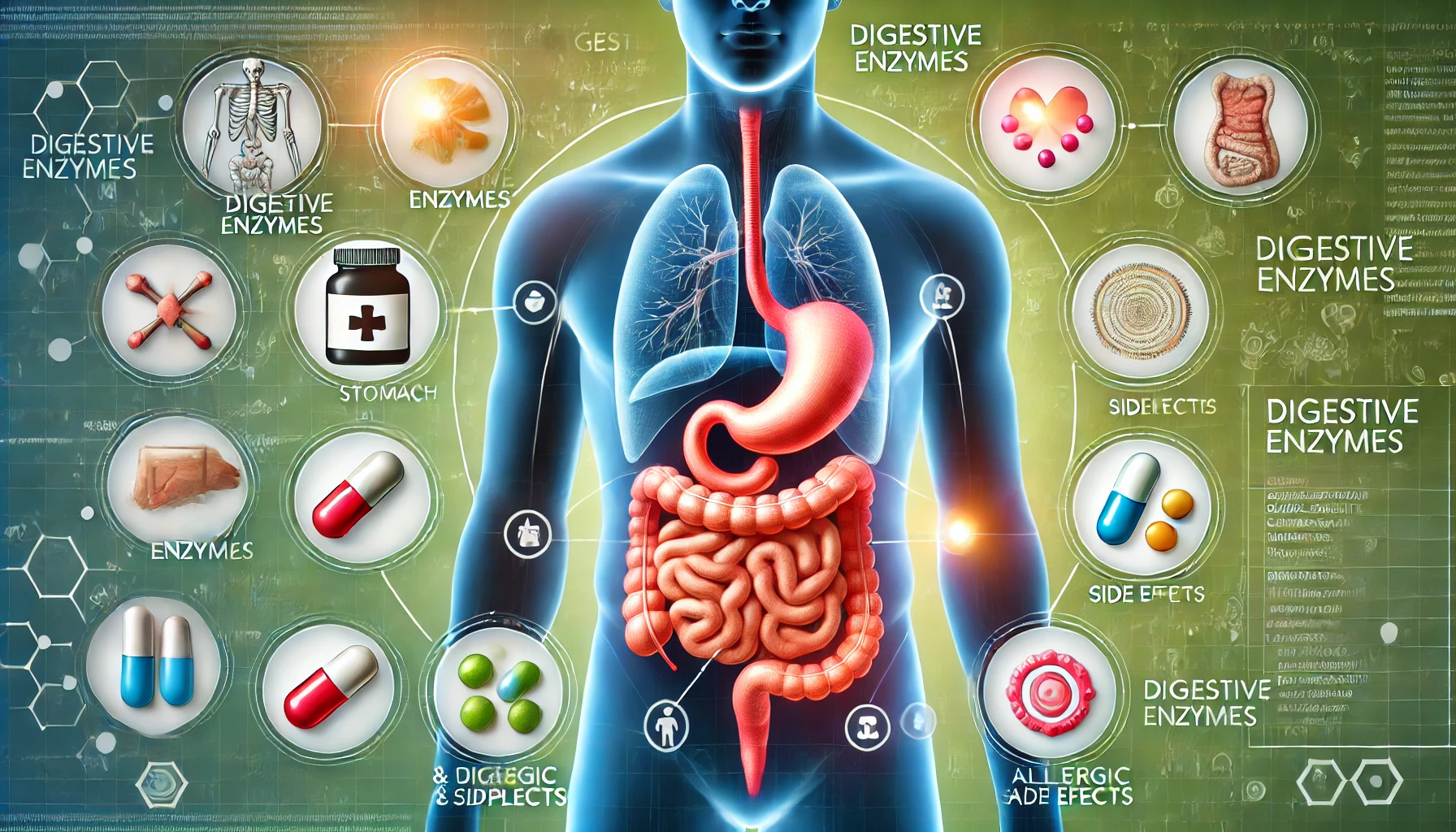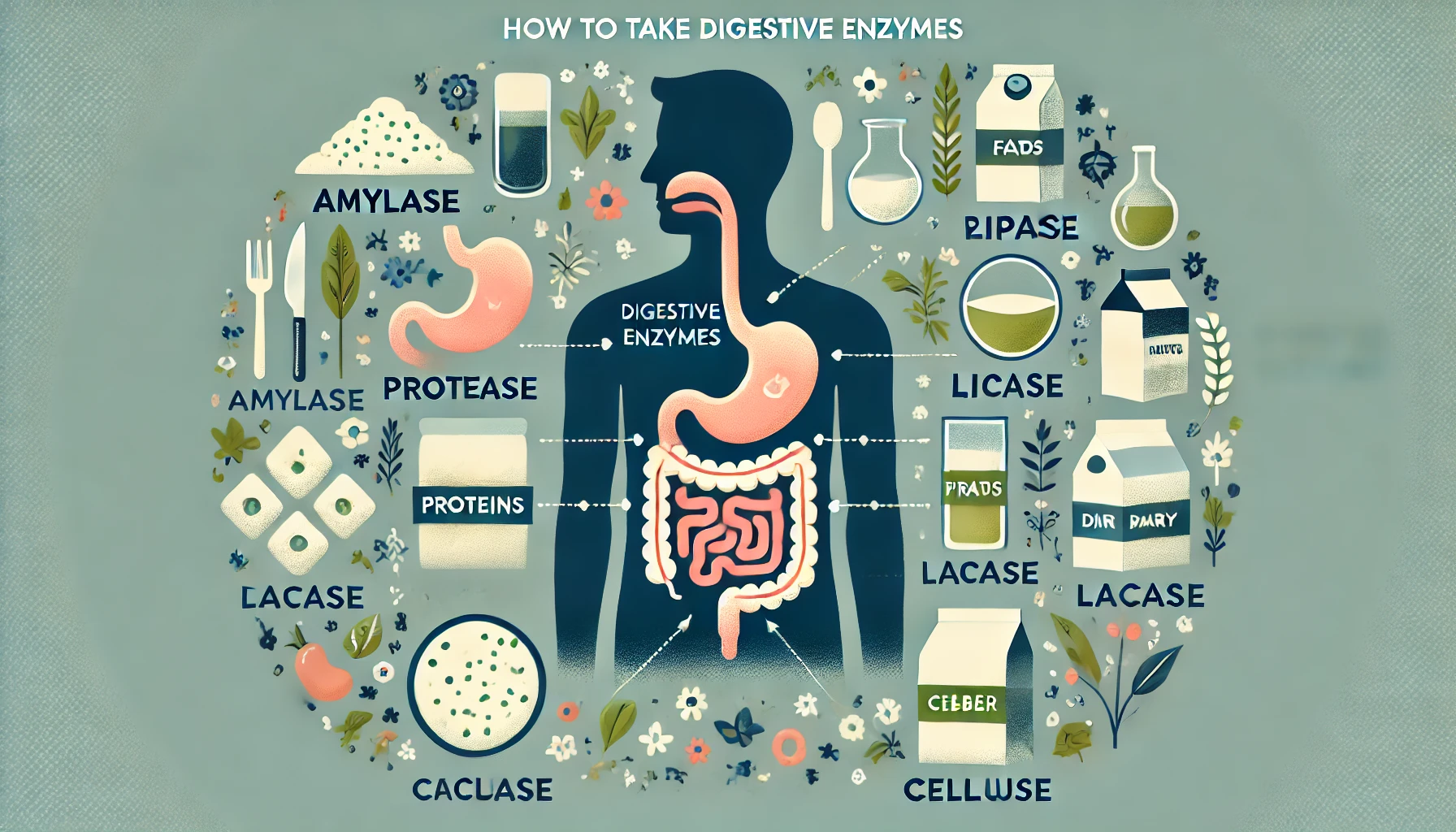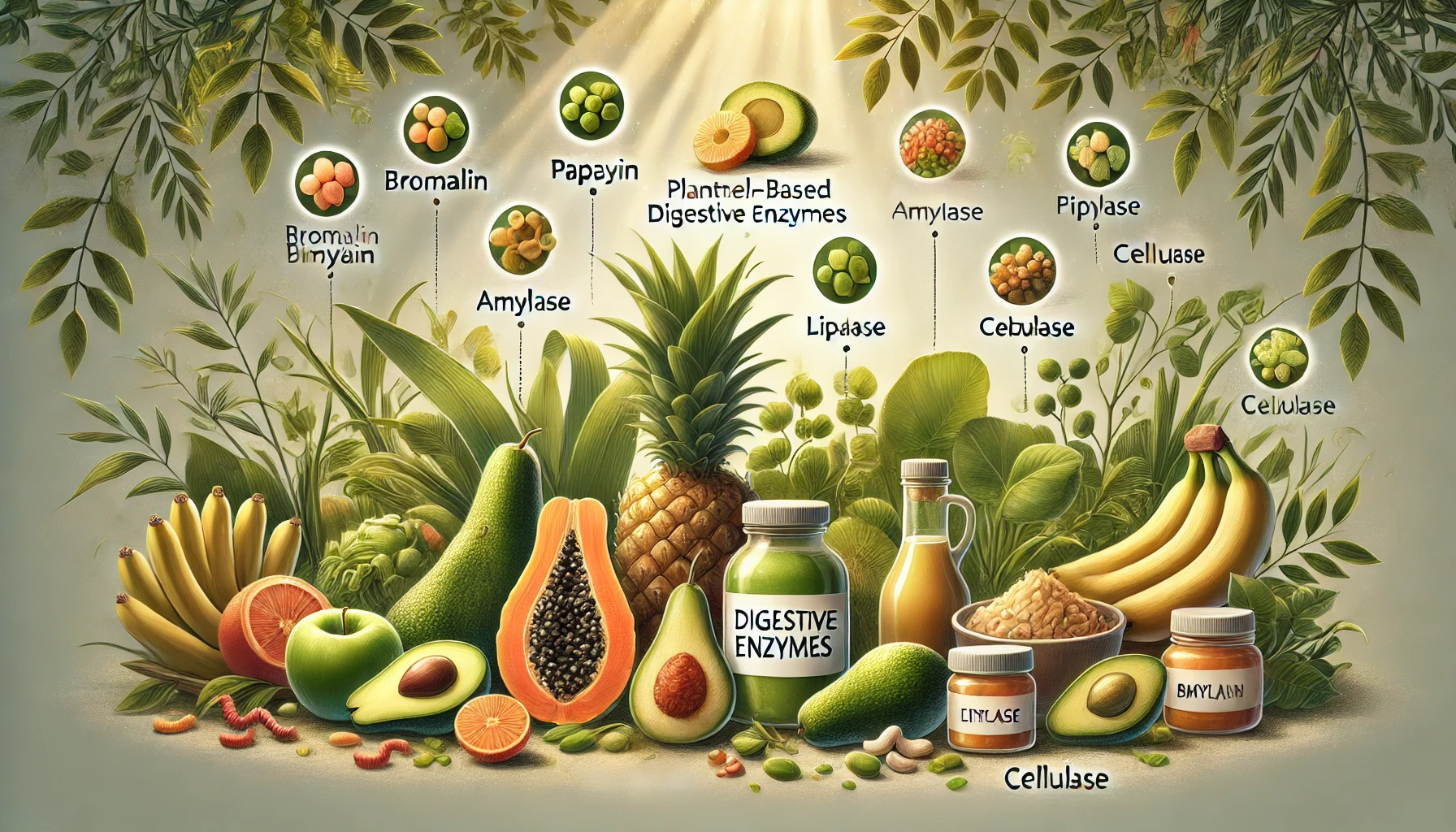Digestive enzymes are crucial for maintaining optimal gut health, as they play a significant role in breaking down the food we eat into nutrients that the body can absorb and utilize. This article explores the importance of digestive enzymes, how they work, and their benefits for gut health.

What Are Digestive Enzymes?
Digestive enzymes are proteins produced by the body that help break down food into smaller molecules, making it easier for the body to absorb nutrients. These enzymes are secreted throughout the digestive system, including the mouth, stomach, pancreas, and small intestine. There are different types of digestive enzymes, each targeting specific macronutrients:
- Amylase: Breaks down carbohydrates.
- Protease: Breaks down proteins.
- Lipase: Breaks down fats.
Without adequate digestive enzymes, the body struggles to process food efficiently, leading to digestive discomfort and nutrient deficiencies.
Summary: Digestive enzymes are essential proteins that help break down carbohydrates, proteins, and fats, enabling the body to absorb nutrients effectively.
How Digestive Enzymes Support Gut Health
Digestive enzymes play a pivotal role in maintaining gut health by ensuring that food is properly broken down and absorbed. Proper digestion reduces the risk of undigested food particles fermenting in the gut, which can cause bloating, gas, and other digestive issues. Additionally, digestive enzymes help maintain a healthy balance of gut bacteria by preventing the overgrowth of harmful bacteria.
Supplementing with digestive enzymes can be particularly beneficial for individuals with enzyme deficiencies, such as those with lactose intolerance, celiac disease, or pancreatic insufficiency. These supplements help reduce symptoms like bloating, gas, and discomfort, contributing to overall gut health.
Summary: Digestive enzymes support gut health by aiding in the proper breakdown and absorption of food, preventing digestive discomfort and maintaining a healthy gut bacteria balance.
Types of Digestive Enzyme Supplements
Digestive enzyme supplements are available in various forms, each containing different types of enzymes tailored to specific needs. Some of the most common types include:
- Comprehensive Enzyme Blends: These supplements contain a combination of enzymes like amylase, protease, and lipase to support overall digestion.
- Targeted Enzymes: Some supplements focus on specific digestive needs, such as lactase for lactose intolerance or alpha-galactosidase for breaking down complex carbohydrates.
- Plant-Based Enzymes: Derived from plants, these enzymes are suitable for vegetarians and are often used to enhance the digestion of plant-based diets.
When choosing a digestive enzyme supplement, it’s important to consider your specific digestive needs and consult with a healthcare provider if necessary.
Summary: Digestive enzyme supplements come in various forms, including comprehensive blends, targeted enzymes, and plant-based options, each designed to support different aspects of digestion.
Benefits of Digestive Enzymes for Gut Health
Incorporating digestive enzymes into your routine can offer several benefits for gut health, including:
- Improved Digestion: Enzymes help break down food more efficiently, reducing the likelihood of indigestion, bloating, and gas.
- Enhanced Nutrient Absorption: By aiding in the complete digestion of food, enzymes ensure that your body absorbs essential nutrients more effectively.
- Reduced Inflammation: Proper digestion reduces the risk of inflammation in the gut, which can lead to conditions like irritable bowel syndrome (IBS) and leaky gut.
- Support for Enzyme Deficiencies: Individuals with enzyme deficiencies can benefit from supplementation to alleviate symptoms and improve gut health.
Summary: Digestive enzymes improve digestion, enhance nutrient absorption, reduce inflammation, and support individuals with enzyme deficiencies, contributing to better gut health.
FAQs
What are the symptoms of enzyme deficiency?
Symptoms of enzyme deficiency can include bloating, gas, diarrhea, constipation, and undigested food in the stool. These symptoms occur because the body is unable to properly break down and absorb nutrients.
Can I take digestive enzymes with other medications?
It’s generally safe to take digestive enzymes with other medications, but it’s always best to consult with a healthcare provider to avoid any potential interactions.
How do I know which digestive enzyme supplement is right for me?
Choosing the right digestive enzyme supplement depends on your specific digestive needs. For general support, a comprehensive enzyme blend may be suitable, while targeted enzymes can address specific issues like lactose intolerance.
Are there any side effects of taking digestive enzyme supplements?
Most people tolerate digestive enzyme supplements well, but some may experience mild side effects like stomach cramps, nausea, or diarrhea. It’s important to start with the recommended dose and consult with a healthcare provider if you experience any adverse effects.
The Final Note
Digestive enzymes play an essential role in maintaining gut health by ensuring the proper breakdown and absorption of nutrients. Whether you have a specific enzyme deficiency or are looking to improve overall digestion, incorporating digestive enzyme supplements into your routine can offer significant benefits. Remember to consult with a healthcare provider before starting any new supplement regimen to ensure it’s the right fit for your needs.
For those interested in exploring high-quality digestive enzyme supplements, you can find a comprehensive list of options on the Digestive Enzyme Supplements page.





